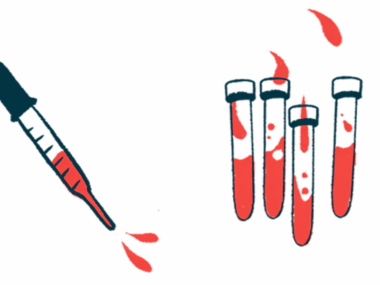COVID-19 Vaccination Likely Cause of Man’s Acquired Hemophilia A
Like all vaccines, it acts as 'immune stimulus' and doctors need be alert to risk
Written by |

COVID-19 vaccines, because they work to stimulate the immune system, may be an emerging cause of autoimmune conditions like acquired hemophilia A, according to a case report.
“This report aims to highlight the risk of … [acquired hemophilia A] following an immune stimulus, thus improving our knowledge regarding possible vaccination-related adverse events,” the researchers wrote.
The case, involving a man who developed the bleeding condition after receiving the vaccine and was initially treated improperly, also highlights the importance of educating physicians about this potential side effect.
“Adequate management plans and the diffusion of shared guidelines are of fundamental importance in order to prevent the development of life-threatening complications and initiate appropriate treatment as soon as possible,” they added.
The case report, “Acquired hemophilia A following COVID-19 vaccination – The importance of prompt diagnosis: A case report,” was published in the journal Transfusion and Apheresis Science.
Acquired hemophilia is a very rare condition caused by the development of self-reactive antibodies against certain coagulation factors — proteins needed for proper blood clotting. In the case of acquired hemophilia A, these antibodies target clotting factor VIII (FVIII).
For about half of these people, the cause of this immune overactivation is never established. For others, illnesses like cancer, infections, or vaccinations have been reported to spur disease onset.
71-year-old had no history of bleeding disorders
Researchers reported a case of acquired hemophilia A following COVID-19 vaccination in a 71-year-old-man admitted to their hospital in Italy.
The man had previously been admitted to another emergency center with symptoms of arm pain and swelling associated with limited movement, and petechiae (tiny spots of bleeding under the skin). He sought help eight days after a second dose of the Pfizer-BioNTech COVID-19 vaccine.
Lab exams showed that his blood was taking longer than normal to clot, but he did not have any blood clots or internal bleeding in soft tissues. He was discharged after being given antibiotics, anticoagulants, and painkillers.
He came to the researchers’ clinic the next day because his symptoms had worsened and he had “massive” hematomas — swelling and skin discoloration due to bleeding within tissues — forming in his chest cavity, abdomen, pelvis, and thigh. His right arm was swelling and he complained of abnormal tingling.
Blood tests revealed the man had low levels of hemoglobin — the protein in blood cells that carries oxygen throughout the body — a condition also known as anemia. His blood was still taking longer than usual to clot.
Acquired hemophilia was confirmed with a test showing low levels of FVIII — 7.9% compared with a normal value ranging between 70–130% — and high levels antibodies against FVIII.
“It appears evident that the patient was not appropriately managed initially due to an unrecognized [acquired hemophilia] diagnosis and the inappropriate and dangerous use of anticoagulant therapy,” the researchers wrote.
Anticoagulants work to prevent blood clotting.
Since the man had no history of bleeding disorders, but one of treated colorectal cancer, a CT scan was performed to make sure his hemophilia was not secondary to cancer. No signs of cancer were observed, and the man had no infections that could be the cause.
‘Immune vaccine stimulation’ seen as possible cause
“Considering the absence of well-identified secondary causes that could have triggered the development of FVIII antibodies and the close temporal correlation with the COVID-19 vaccine, we hypothesized [acquired hemophilia A] onset following immune vaccine stimulation,” the researchers wrote.
His condition worsened over the next several days, and he was given a blood transfusion, immunosuppressive treatment with the steroid prednisolone, and a factor VIIa bypassing therapy to prevent bleeding episodes.
Though slightly improving, his hemoglobin levels remained low, hematomas large, and FVIII activity deficient. He received additional blood transfusions and cyclophosphamide, another immunosuppressant, was added to his treatment regimen.
Improvements were seen after a week in all three of these symptoms, and factor VIIa bypassing therapy was gradually reduced.
The man was discharged 10 days after starting cyclophosphamide with stable hemoglobin levels and FVIII activity, as well as normal performance on blood clotting tests. He showed no signs of bleeding.
Immunosuppressive treatment was tapered off with no signs of hemophilia recurrence.
Researchers noted that these cases are often handled in an emergency room, where physicians may not have experience in recognizing and treating hemophilia, which “can lead to delays in diagnosis, aggravating the prognosis, and causing a waste of resources.”
“Coagulation disorders such as [acquired hemophilia A] can be potentially lethal. Increasing awareness of this rare side-effect following vaccination and its surveillance could help our knowledge of the underlying mechanisms and improve patient outcomes,” they wrote.
While vaccinations are not an established cause of hemophilia, it’s possible that immune cells activated in response to the vaccine “cross-react” and target structurally similar blood clotting proteins.
However, “establishing a specific causal relationship between the vaccine and these autoimmune disorders can be challenging,” the team wrote.
Previous case reports also describe acquired hemophilia A developing in people infected by the SARS-CoV-2 virus that causes COVID-19, including those without symptoms, the scientists noted.



